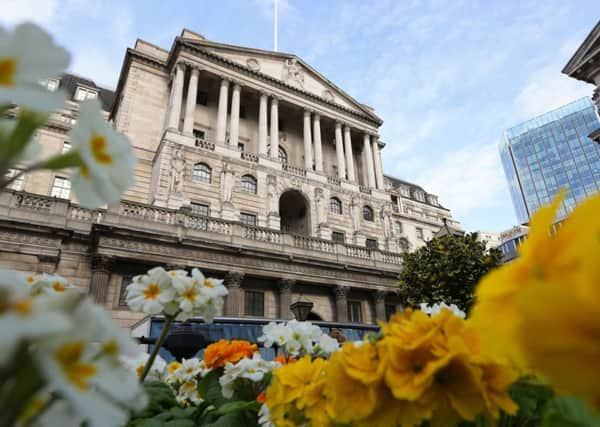Financial regulator warns over extra Brexit burden


Sam Woods, chief executive of the Prudential Regulation Authority (PRA), said while the watchdog was having to make work on Brexit its “top priority”, this would place a significant strain on its resources.
In a response to a letter from the new Treasury Select Committee chair Nicky Morgan, he said the PRA would likely have to make some tough decisions.
Advertisement
Hide AdAdvertisement
Hide AdHe said the prospect of authorising and supervising more firms set up as a result of contingency planning was “likely to place a material extra burden on the PRA’s resources”.
“It is incumbent on us to manage this burden but we may have to make some difficult prioritisation decisions in order to accommodate it.”
The warning comes after Ms Morgan last month called on Mr Woods to reveal how City firms are preparing for a cliff-edge Brexit and whether those plans pose a threat to financial stability.
In his reply dated August 2, Mr Woods said the threat of fallout across the City from the UK’s withdrawal from the EU poses a “material risk to our objectives and this work is therefore a top priority”.
Advertisement
Hide AdAdvertisement
Hide AdThe PRA has collected details from more than 400 banks and financial firms with cross-border activities between the UK and the EU, including subsidiaries of US investment banks based in London, on their preparations for all scenarios in the Brexit negotiations, including a “no deal” outcome.
Mr Woods said the PRA was analysing the responses on an individual basis, as well as collectively to assess any possible risks to the country’s financial stability.
The PRA and Financial Policy Committee hope to conclude on this work in the autumn.
Mrs Morgan said the Treasury Select Committee would keep a close eye on the PRA’s resources burden from Brexit.
Advertisement
Hide AdAdvertisement
Hide AdShe said: “The UK leaving the European Union is a complex task. The potential extra burden on the PRA’s resources, and the risk that may pose to its objectives, is an issue that I’m sure the committee will want to monitor.”
Mr Woods also used his letter to reiterate the PRA’s call for a transitional arrangement “to give UK and EU firms more time to make the necessary changes to adjust to the UK’s new relationship with the EU in an orderly way”.
He said there were several potential risks to financial stability, the wider economy and individual financial firms from Brexit.
As set out previously by the Bank, he said Brexit has the potential to “affect the economy through supply, demand and exchange rate channels”.
Advertisement
Hide AdAdvertisement
Hide Ad“This could require banks to be able to withstand, and continue lending in, an environment of higher loan impairments, increased risk of default and lower asset prices and collateral values.”
The Bank is stress testing banks to ensure they can withstand shocks to the system, while also working to ensure there is no disruption to the provision of financial services.
Mr Woods said firms were also looking to re-structure to mitigate risks, which will “increase complexity” and add to the PRA’s workload.